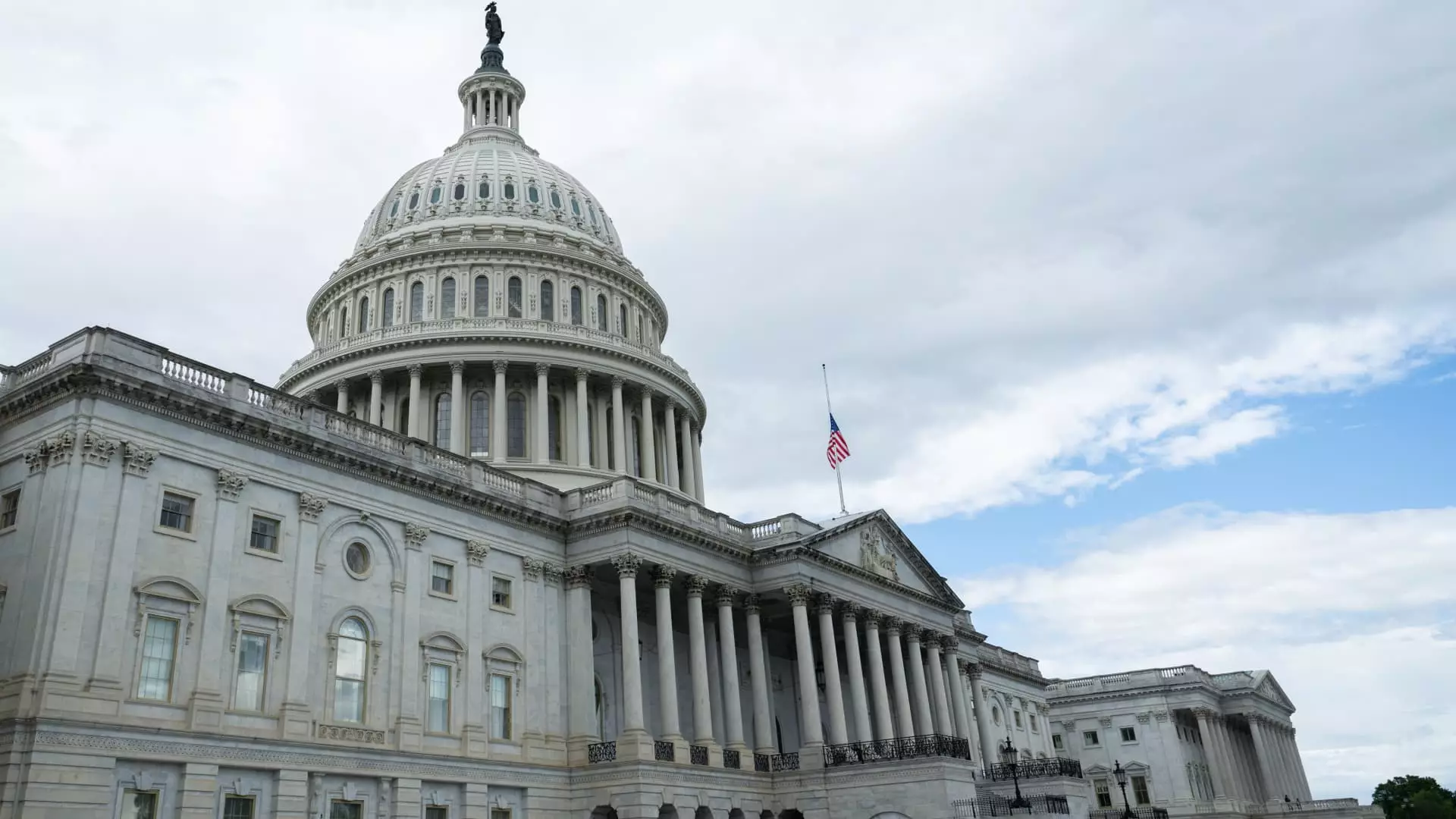The recent passage of a sweeping tax cut package by House Republicans is akin to setting off a financial time bomb. This legislation, dubbed the “One Big Beautiful Bill Act,” poses an existential threat to the stability of the U.S. economy. According to estimates from the Committee for a Responsible Federal Budget, the bill is projected to add an astonishing $3.1 trillion to the national debt over the next decade — a number that could swell to $3.8 trillion when factoring in economic effects and interest. This staggering increase in federal debt is not just a statistic; it represents a heavy burden that future generations will have to shoulder, and it’s unacceptable that policymakers are so cavalier about the fiscal consequences of their actions.
Rep. Thomas Massie of Kentucky has poignantly dubbed this legislation a “debt bomb,” indicating the ticking clock that those of us following American fiscal policy should heed. The notion that Congress can engage in “funny math” is not only concerning but reflects a fundamental ignorance or disregard for the economic realities that average Americans face. It is naive at best and irresponsible at worst to embark on a path that prioritizes tax cuts for the wealthy while neglecting the long-term financial well-being of the country.
The Broader Implications of Rising Debt
As the national debt continues to balloon, it may appear irrelevant to many individuals merely focused on their day-to-day lives. However, higher debt burdens have far-reaching consequences that all consumers should be acutely aware of. Economists like Mark Zandi warn that an escalating debt load translates into higher interest rates for mortgages, car loans, and other forms of consumer debt. In essence, this legislation does not just affect the upper echelons of society; it will trickle down to impact everyday Americans who are struggling to afford homes and make ends meet.
People often underestimate the importance of the debt-to-GDP ratio, which has reached alarming levels. Currently at around 101%, this ratio could surge to an astonishing 148% if the House bill is enacted. Such increases are not abstract economic figures; they directly correlate to the cost of borrowing for consumers, which, as history has shown, can inflate dramatically. A fixed-rate mortgage could shift from approximately 7% to 7.6%, a significant jump that could push homeownership further beyond the grasp of many aspiring first-time buyers.
Investor Confidence in Jeopardy
The repercussions of unrestrained federal debt will reverberate through the financial markets, causing investor confidence to wane. Moody’s has already adjusted the U.S. sovereign credit rating, signaling that the rising federal deficit poses a considerable risk for investors. As perception shifts and anxiety over U.S. debt thickens, investors will demand higher interest rates to compensate for the augmented risk associated with Treasury bonds.
This situation creates a vicious cycle: as bond yields rise, those holding existing bonds will see their portfolios depreciate. The `new normal` for consumer financing could bear a heavier weight, marking a jarring shift from previous years when interest rates were relatively stable. The current trend of skyrocketing rates emphasizes the urgency of addressing the debt burden before it spirals further out of control.
A Dangerous Path of Short-Term Gain
Some advocates of the tax bill argue that President Trump’s tariff policies could mitigate some of the financial damage. However, this reasoning is fundamentally flawed. Tariffs are a volatile source of revenue that can be undone by future administrations or face legal challenges. Such dependency on unreliable revenue streams exposes the economy to significant risk and potential backlash, particularly as skepticism grows around the sustainability of the current fiscal strategy.
The argument that tax cuts will incentivize economic growth is also questionable. One must wonder whose growth these tax cuts are actually stimulating, as a substantial portion is expected to benefit the wealthy disproportionately. Further, the expectation that the government can consistently cut vital safety-net programs for the lower-income bracket while simultaneously slashing taxes for the affluent reveals a stark classist agenda that undermines the idea of shared prosperity.
As the Senate begins to weigh the implications of the House’s fiscal extravagance, critical lawmakers from both parties express concern over the potential fallout. Senate Republicans such as Rand Paul have echoed worries about the practical ramifications of the legislation. If Congress truly had the best interests of the American citizenry in mind, these concerns would take precedence over partisan agendas.
The reckless pursuit of tax cuts that exacerbate our debt crisis is a dangerous gamble that risks not only our fiscal health but the livelihood of millions of Americans. It’s time for us to demand accountability from our representatives and halt the reckless trajectory toward economic instability.

